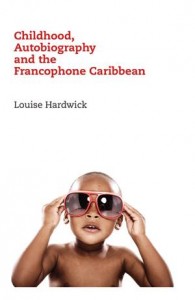This book examines a major modern turn in Francophone Caribbean literature towards the r?cit d'enfance, or childhood memoir, and asks why this occurred post-1990, connecting texts to recent changes in public policy and education policy concerning the commemoration of slavery and colonialism both in France and at a global level (for example, the UNESCO project 'La Route de l'esclave', the 'loi Taubira' and the 'Comit? pour la m?moire de l'esclavage'). Combining approaches from Postcolonial Theory, Psychoanalysis, Trauma Theory and Gender Studies, and positing recognition as a central concept of postcolonial literature, it draws attention to a neglected body of r?cits d'enfance by contemporary bestselling, prize-winning Francophone Caribbean authors Patrick Chamoiseau, Maryse Cond?, Gis?le Pineau, Daniel Maximin, Rapha?l Confiant and Dany Laferri?re, while also offering new readings of texts by Aim? C?saire, Frantz Fanon, Edouard Glissant, Joseph Zobel, Fran?oise Ega, Mich?le Lacrosil, Maurice Virassa and Mayotte Cap?cia. The study proposes an innovative methodological paradigm with which to read postcolonial childhoods in a comparative framework from areas as diverse as the Caribbean, North Africa, Sub-Saharan Africa and particularly the Haitian diaspora in North America.
Childhood, autobiography and the francophone
Sobre
Talvez você seja redirecionado para outro site












